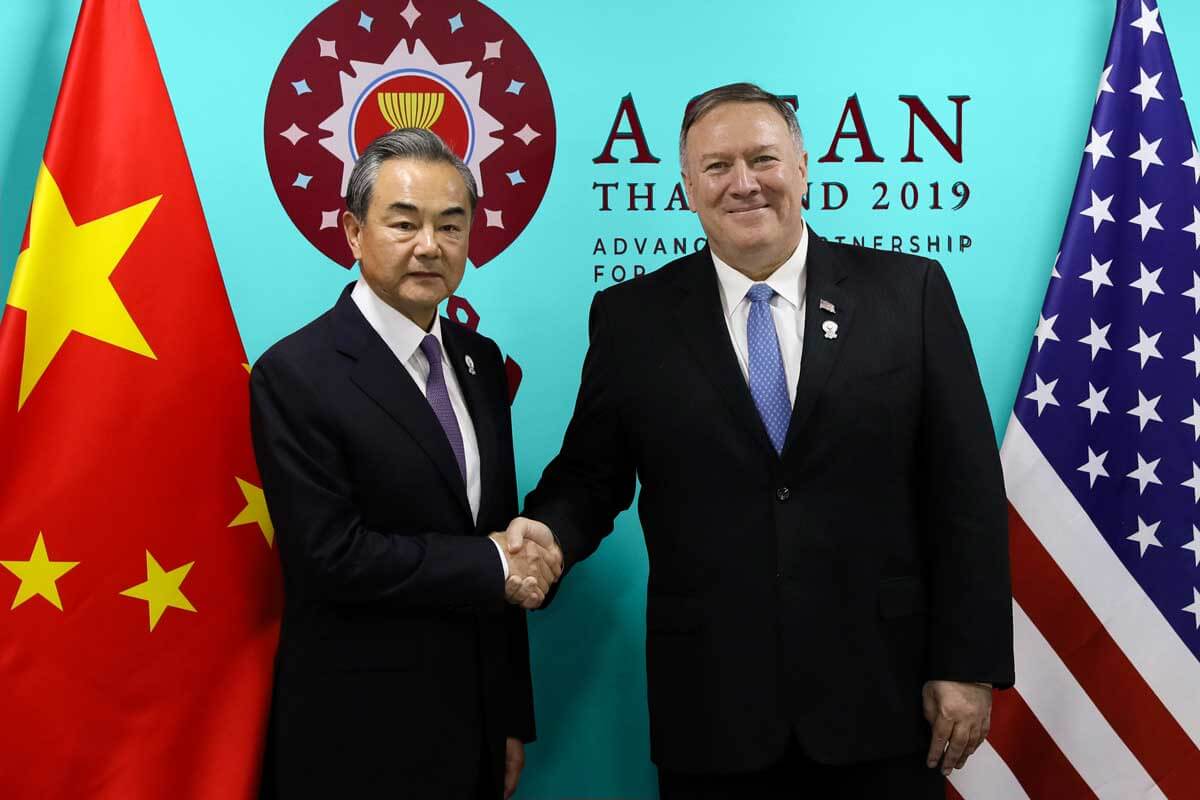High-level ministers from Indonesia and Singapore said that the Association of Southeast Asian Nations (ASEAN) has enough leverage to avoid being forced into choosing between the US or China. The ministers from the two countries made the statements during a live-streamed panel discussion on the growing rivalry between Washington and Beijing that was organized by the Standard Chartered Bank.
Luhut Pandjaitan, Indonesia’s coordinating minister for maritime affairs and investment, explained how the island nation has a large enough domestic market, thus insulating it from choosing sides between the two economic giants. Pandjaitan maintained, “We are not a small country. Why should we take a side? We have a big market.” Echoing a similar sentiment, Tharman Shanmugaratnam, Singapore’s coordinating minister for social policies, said that ASEAN’s value to the US and China must not be overlooked. Elaborating further, Shanmugaratnam pointed out how the ASEAN serves as a significant economic and strategic bloc, which explains why both the US and China wish to maintain friendly relations with the region. Hence, he added, “ASEAN is not a pushover.”
Nevertheless, countries like Cambodia and Myanmar, which have a lower economic standing within ASEAN, have differing positions from Indonesia and Singapore. Cambodia’s longstanding dictator Hun Sen is increasingly backing Beijing, as it depends on China for political and financial support. As the trade war between the US and China intensified in 2018, Hun Sen’s son and political heir, Hun Many, pledged the country’s allegiance to Beijing. Further, he warned, “The US-China trade spat may create lasting divisions” within ASEAN. Similarly, Myanmar has become increasingly reliant on China, in large part due to sanctions imposed on it by the US for the state’s human rights abuses against its ethnic minorities.
In contrast, Vietnam, another low-income economy in the bloc, benefits from the trade war between the US and China. Nations such as Japan and South Korea are diversifying their supplying chains by moving them from China to Southeast Asian countries. Accordingly, Vietnam is becoming the leading destination for countries seeking to move their supply chains away from China.
Vietnam is concurrently embroiled in a maritime dispute with China in the South China Sea (SCS). Vietnam has been vocal in its position in the disputed waters, by allowing Talisman Vietnam to drill for oil and gas in mid-June, despite Beijing’s protests. Eventually, however, Vietnam caved in, halting its drilling due to the threat of military retaliation by China. At the same time, given the historical mistrust between the two countries, Vietnam is also wary of the US. However, it has welcomed the US’ revised position on the SCS dispute.
Unlike Vietnam, the Philippines recently chose not to conduct naval drills in the contested SCS waters in a bid to ease tensions with China. Filipino Defence Secretary Delfin Lorenzana said, “President Rodrigo Duterte has a standing order to us, to me, that we should not involve ourselves in naval exercises in the South China Sea except our national waters, the 12 mile distance from our shores.”
ASEAN, therefore, despite Singapore and Indonesia’s protestations, does not have a unified stance on the growing divide between Washington and Beijing. It is currently unclear how a potential change in leadership in the US following the upcoming presidential elections could impact the future course of ASEAN’s policy towards the US and China.
Singapore and Indonesia Dismiss Talks of Choosing Between US and China
However, ASEAN members do not have a unified policy towards China and the US.
August 26, 2020

US Secretary of State Mike Pompeo with China's Foreign Minister Wang Yi on the sidelines of the 52nd Association of Southeast Asian Nations (ASEAN) Foreign Ministers' Meeting, in 2019. SOURCE: AFP
